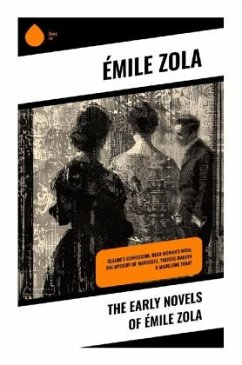In "The Early Novels of Émile Zola," we embark on a compelling exploration of the formative works that established Zola as a master of literary realism. This collection encapsulates his pioneering narrative style, marked by meticulous attention to social detail and an unwavering commitment to portraying the complexities of human life. From the gritty backdrop of industrial Paris to the intricacies of familial relationships, Zola's prose is infused with a naturalistic lens that captures the stark realities of 19th-century France, setting the stage for a profound examination of class struggle and moral ambiguity. Émile Zola, a central figure in the literary movement that challenged the idealized representations of life prevalent in Romanticism, drew upon his own experiences and observations of society's underbelly. Influenced by the socio-political climate of the time and his involvement in the Débats littéraires, Zola sought to illuminate the harsh truths of modern existence, laying the groundwork for the later works that would define his career. His commitment to social reform and his involvement in critical debates on topics such as Dreyfus Affair further underscore his dedication to literature as a vehicle for change. Readers interested in the roots of modern literary realism will find Zola's early novels both enlightening and significant. This collection not only showcases the author's remarkable evolution but also serves as a textured commentary on the struggles faced by individuals in a rapidly changing world. Engaging with this book invites deeper reflection on the socio-political fabric of society and the enduring power of narrative to shape human understanding.
Bitte wählen Sie Ihr Anliegen aus.
Rechnungen
Retourenschein anfordern
Bestellstatus
Storno








